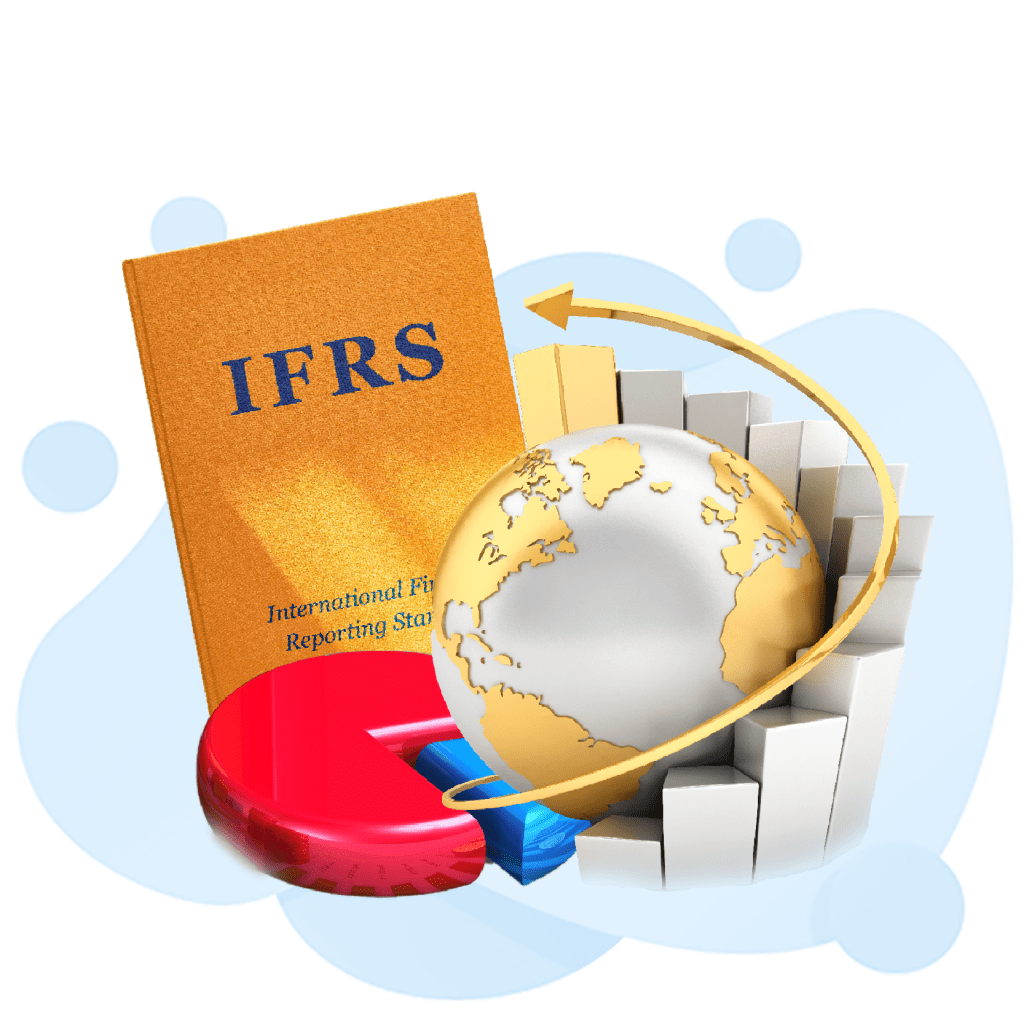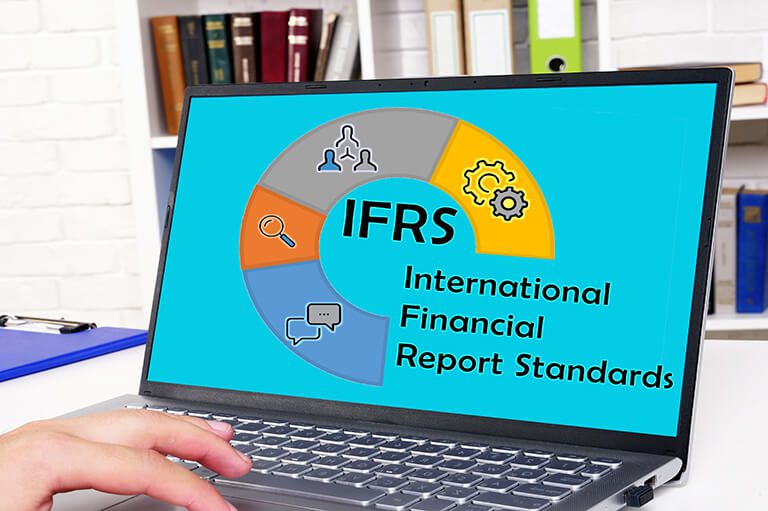International Financial Reporting Standards Certification

In a global business environment, it is vital to understand the requirements of international financial reporting standards. This course helps you gain a deeper understanding of the concepts and principles behind IFRS and prepare for the DipIFR exam.
This qualification is designed for finance and accounting professionals and working graduates who want to take a DipIFR exam. It provides a broad introduction to IFRS, underlining key information and providing useful summaries and examining specific standards topic-by-topic.
International Financial Reporting Standards
International Financial Reporting Standards (IFRS) are a set of accounting rules that promote transparency and accountability in financial statements. They help investors make informed decisions about companies and investments, and are designed to be globally consistent across industries and countries. IFRS is mandatory in more than 160 countries, including all members of the European Union.
Investors are more likely to invest in companies with IFRS-compliant financial records, as they are presumed to be authentic and easy to understand. This increased visibility helps businesses to attract more capital, and paves the way for economic growth.
However, these rules don’t apply to non-profit organizations (NPOs). Many NPOs rely on cash transfers from donors, gifts-in-kind and fundraising for day-to-day operations. These transactions have unique characteristics that are not taken into account by existing international reporting standards. This creates a number of issues for NPOs, and they have been calling for changes to the IFRS system to reflect their needs. The IFRS Foundation is working to address these issues. Currently, the Foundation is developing a practical guide to IFRS that will help NPOs apply IFRS to their reporting.
ACCA Diploma in International Financial Reporting
The ACCA DipIFR is an internationally recognised qualification in financial reporting standards endorsed by the Association of Chartered Certified Accountants (ACCA). It helps finance professionals to develop their knowledge, understanding and application of International Financial Reporting Standards, and the concepts and principles which underpin them.
Finance experts are increasingly required to work in a global business environment where accounting and reporting standards have converged with IFRS or the Indian Accounting Standards (Ind AS). A diploma in IFRS from ACCA is an excellent way for them to improve their skills and gain an edge in the employment market.
The DipIFR is assessed by a single three-hour written exam, held twice a year – in June and December. The programme fee includes one attempt at the exam; however, a further fee will be charged for re-sit attempts. The exam consists of a mix of calculation and opinion based questions. In addition, some of the questions adopt a scenario/case study approach. Applicants should have completed a degree and at least two years of professional experience to be eligible for this qualification.

Australian International Financial Reporting Standards
The Australian Accounting Standards Board (AASB) developed requirements to ensure that the financial statements of reporting entities comply with IFRSs. These requirements include those that are specific to Australia, such as those for not-for-profit and public sector entities or additional disclosures that address domestic, regulatory or other issues.
Reporting entities must lodge financial reports with us under section 601CK of the Corporations Act. The AASB also sets accounting standards that apply to entities in the private and public for-profit sectors that prepare general purpose financial statements (GPFSs).
For example, a company E Coy may prepare separate GPFSs or consolidated GPFSs in accordance with AASB 127. However, if E Coy’s ultimate Australian parent company C Coy prepares consolidated GPFSs that comply with IFRSs and is exempt from consolidation under paragraph 4 of AASB 10, then E Coy must not prepare separate GPFSs. The basis of the preparation note must state that the GPFSs and their accompanying notes comply with the relevant Australian Accounting Standard. The auditor’s report must also refer to compliance with the relevant AAS.
International Financial Reporting and Analysis
If you are a business owner, or want to start a business in the future, you need to understand how international financial reporting and analysis work. This will help you make more strategic business decisions and ensure compliance with the relevant regulations. Fortunately, cloud accounting software makes this process easier by providing easy access to accurate data.

IFRS standards are a set of rules that dictate how to present financial statements and other financial information for use by investors, regulators, and others. They are designed to maintain trust and transparency in the world of finance. These are necessary for the growth of businesses and the economy as a whole.
In addition to ensuring transparency and accountability, IFRS also promotes economic efficiency by allowing businesses to compare the results of their activities with those of other companies. They can identify opportunities and risks more easily, and invest in more productive activities. In the long run, this leads to more jobs and a stronger economy. The IFRS are used in over 167 countries and are continuously monitored by the relevant authorities to ensure accuracy and consistency.
International Financial Reporting Standards Canada
IFRS standards are globally recognized accounting and financial reporting standards used by companies, not-for-profit organizations, government agencies and other publicly accountable entities. They are designed to make financial statements more understandable and enforceable across borders. The AcSB is an independent body that develops and contributes to IFRSs. Its purpose is to serve the public interest by providing Canadian entities with a high-quality set of global accounting standards.
In addition to developing locally-relevant accounting standards, the AcSB also participates in international consultations and activities of the International Accounting Standards Board (IASB) to ensure that the needs of Canada’s publicly accountable entities are represented. Its members are diverse and have a range of professional experience from throughout the country.
Choosing the right accounting standards is essential for a business’s credibility in its external reports. While many companies assume they should immediately adopt IFRS, the choice depends largely on the intended purposes of their reporting. For example, a company that seeks investment or financing from US investors may be better served by reporting under U.S. GAAP.

International Financial Reporting Standards a Practical Guide
As businesses become more global, a common set of accounting standards is becoming increasingly important. This is why it is essential that you know how to use IFRS, which define globally accepted accounting principles. IFRS is the de facto international reporting standard, and many major capital markets require or permit publicly traded companies to use them. This ACCA qualification will help you learn about the structure and principles of IFRS so that you can prepare reports and understand how to apply them.
This book provides a broad introduction to the field of international financial reporting, tracing its history from its early roots to recent changes and updates and future developments. It is written in an accessible, user-friendly manner that underlines key information and provides useful summaries. It also examines and breaks down specific standards topic-by-topic.
This comprehensive workbook is designed to help you quickly and easily prepare and understand IFRS-based financial statements. It offers clear and concise explanations of IFRSs, including those that are based on Indian Accounting Standards (Ind AS). It is illustrated throughout with a variety of examples to clarify concepts and illustrate applications.
International Financial Reporting Standards for SMEs
The IASB has simplified financial reporting by releasing IFRS for Small- and Medium-sized Entities (IFRS for SMEs). The new standard is designed to meet the needs of SMEs by providing exemptions from recognition and measurement requirements and by simplifying the disclosure requirements. It will also make the transition to full IFRS Standards easier for SMEs that become publicly listed entities.

The IFRS for SMEs accounting standard includes the following:
The IASB has posted a no-charge, comprehensive set of self-study training materials. These include the IFRS for SMEs standard itself (along with its Basis for Conclusions and Illustrative Financial Statements Presentation and Disclosure Checklist), implementation guidance, and training modules. The IASB has also created a wiki to allow users to contribute comparison resources.
International Financial Reporting Standards IFRS Quizlet
As IFRS gains acceptance, many accountants and financial statement preparers will have to learn about it. In addition, other professionals who provide services to companies that use IFRS may need to be trained, such as actuaries and valuation experts.
One of the main advantages of IFRS is that it allows companies to present their financial statements on a consistent basis. It also makes it easier for businesses to compare the financial results of their competitors. In addition, IFRS allows companies to report their property, plant and equipment and natural resources at fair value.
Another advantage of IFRS is that it can be easily understood by non-US investors. It is believed that IFRS will help reduce inefficiencies in the global capital markets. While some investors may oppose full adoption of IFRS, others believe that a single set of high-quality international accounting standards is necessary.